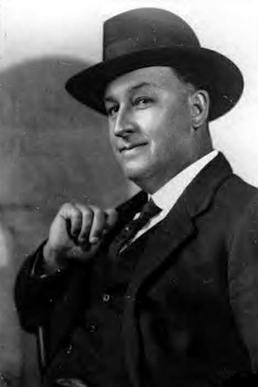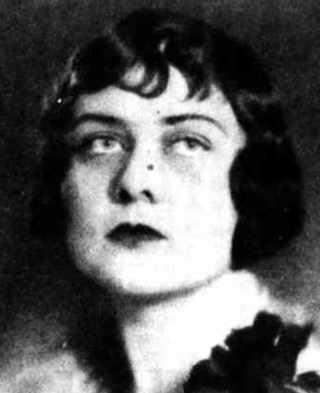Related Research Articles

The cinema of Australia had its beginnings with the 1906 production of The Story of the Kelly Gang, arguably the world's first feature film. Since then, Australian crews have produced many films, a number of which have received international recognition. Many actors and filmmakers with international reputations started their careers in Australian films, and many of these have established lucrative careers in larger film-producing centres such as the United States.

George Miller is an Australian filmmaker best known for his Mad Max franchise, whose second installment, Mad Max 2, and fourth, Fury Road, have been hailed as two of the greatest action films of all time, with Fury Road winning six Academy Awards. Miller is very diverse in genre and style as he also directed the biographical medical drama Lorenzo's Oil, the dark fantasy The Witches of Eastwick, the Academy Award-winning animated film Happy Feet, produced the family-friendly fantasy adventure Babe and directed the sequel Babe: Pig in the City.
Jan Chapman is an Australian film producer. Films produced by Chapman include The Last Days of Chez Nous (1992), The Piano (1993), Love Serenade (1996), Holy Smoke! (1999), and Lantana (2001). While studying English and Fine Arts at Sydney University in the late 1960s Chapman began working on small, independent films, as part of the nascent Sydney Filmmakers Co-op, which included her first husband, film director Phillip Noyce. After the Film Co-op moved into its premises in Darlinghurst, she was involved for a time with the Sydney Women's Film Group while working in the Education department of the Australian Broadcasting Corporation (ABC). Subsequently as a producer at the ABC she was responsible for a number of TV series including Sweet and Sour, and with Sandra Levy produced the much acclaimed Come in Spinner (ABC TV miniseries 1990).
Robyn Archer, AO, CdOAL is an Australian singer, writer, stage director, artistic director, and public advocate of the arts, in Australia and internationally.
The Longford Lyell Award is a lifetime achievement award presented by the Australian Academy of Cinema and Television Arts (AACTA), a non-profit organisation whose aim is "to identify, award, promote and celebrate Australia's greatest achievements in film and television." The award is presented at the annual AACTA Awards, which hand out accolades for technical achievements in feature film, television, documentaries and short films. From 1968 to 2010, the award was presented by the Australian Film Institute (AFI), the Academy's parent organisation, at the annual Australian Film Institute Awards. When the AFI launched the Academy in 2011, it changed the annual ceremony to the AACTA Awards, with the current award being a continuum of the AFI Raymond Longford Award.
Palace Cinemas is the fifth largest major cinema chain in Australia, with various locations in CBD and inner suburban areas of most capital cities. Palace Cinemas currently comprises 24 cinemas with 180 screens and more than 550 staff. Its head office is based in the Melbourne suburb of South Yarra, close to its Cinema Como flagship. In 2015, the chain saved The Astor Theatre, which remains the southern hemisphere's oldest continuously running single screen theatre.
Deborah Joy Cheetham, is an Aboriginal Australian soprano, actor, composer and playwright.

Raymond Longford was a prolific Australian film director, writer, producer and actor during the silent era. Longford was a major director of the silent film era of the Australian cinema. He formed a production team with Lottie Lyell. His contributions to Australian cinema with his ongoing collaborations with Lyell, including The Sentimental Bloke (1919) and The Blue Mountains Mystery (1921), prompted the Australian Film Institute's AFI Raymond Longford Award, inaugurated in 1968, to be named in his honour.
The Fatal Wedding is a play by Theodore Kremer and a 1911 Australian silent film directed by Raymond Longford based on the melodrama, which he and Lottie Lyell had toured around Australia.
The Dinkum Bloke is a 1923 Australian silent film directed by Raymond Longford. Despite the title and the presence of Arthur Tauchert and Lottie Lyell in the cast, the film is not a direct sequel to The Sentimental Bloke (1919) or Ginger Mick (1920).

Phyllis Glory McDonagh was an Australian film producer, production designer and journalist, who often worked in collaboration with her sisters Paulette and Isabella.

Isabella Mercia McDonagh, also known as Marie Lorraine, was an Australian actress who often worked in collaboration with her sisters Paulette and Phyllis. Isabella, alongside her two sisters made history by owning and running a film production company, therefore becoming the first Australian women to do so.

Fiona Margaret McLeod is an Australian barrister practising at the Victorian Bar.
Susan Kathleen Milliken is an Australian film producer and author.
Susan Mary Provan is an Australian performing arts producer, who has been director of the Melbourne International Comedy Festival since 1994.

Mitu Bhowmick Lange is an Indian-Australian filmmaker, film producer and founder-director of Mind Blowing Films, a film distribution company that focusses on distribution of local content to Australia, New Zealand and Fiji. She is the founder and director of Indian Film Festival of Melbourne, a Victorian government funded annual film festival that started in 2010 and the Victorian Government came on board in 2012. She has also provided line production services for the Hindi films Salaam Namaste (2005), Koi Aap Sa (2005), Chak De India (2007), Bachna Ae Haseeno (2008), Main Aurr Mrs Khanna (2009) and Love Aaj Kal (2009). Lange was awarded Jill Robb Screen Leadership Award for 2017 from Film Victoria. Mitu Bhowmik was appointed as a board of member at WIFT Australia in Feb 2022. Mitu is also a board member at Film Vic Australia and the part of the committee for Natalie Miller Fellowship (NMF).
Alfreda "Freda" Glynn, also known as Freda Thornton, is a Kaytetye photographer and media specialist. She is known as co-founder of the Central Australian Aboriginal Media Association Group of Companies, which incorporates CAAMA and Imparja.
Elizabeth May Jones, best known as Liz Jones, is an Australian theatre director and artistic director of La Mama Theatre in Melbourne.
Sue Maslin is an Australian screen producer. She is best known for her feature films Road to Nhill (1997) Japanese Story (2003) and The Dressmaker (2015).
Carol Judith Schwartz is an Australian business executive, community leader and philanthropist.
References
- ↑ McKay, Holly (26 January 2013). "Australia Day gong for movie queen". The Leader. Retrieved 6 May 2019.
- ↑ Ross, Annabel (27 March 2012). "Melbourne Story: Natalie Miller". The Sydney Morning Herald. Retrieved 6 May 2019.
- ↑ Coslovich, Gabriella (21 August 2005). "Last to leave, turn out the..." The Age. Retrieved 6 May 2019.
- ↑ "Miller, Natalie Rona OAM". Australian Honours Search Facility. Australian Government. Retrieved 6 May 2019.
- 1 2 "Screen Producers Australia announces Lifetime Achievement Award recipient Natalie Miller AO and Business of the Year finalists for 2015" (PDF). Screen Producers Australia. Retrieved 6 May 2019.
- ↑ Boland, Michaela (13 July 2011). "Pioneer honoured with fellowship". The Australian. Retrieved 6 May 2019.
- ↑ "Miller, Natalie AO". Australian Honours Search Facility. Australian Government. Retrieved 6 May 2019.
- ↑ "2017 Victorian Honour Roll of Women Commemorative Booklet" (PDF). Her Place Museum. Retrieved 6 May 2019.